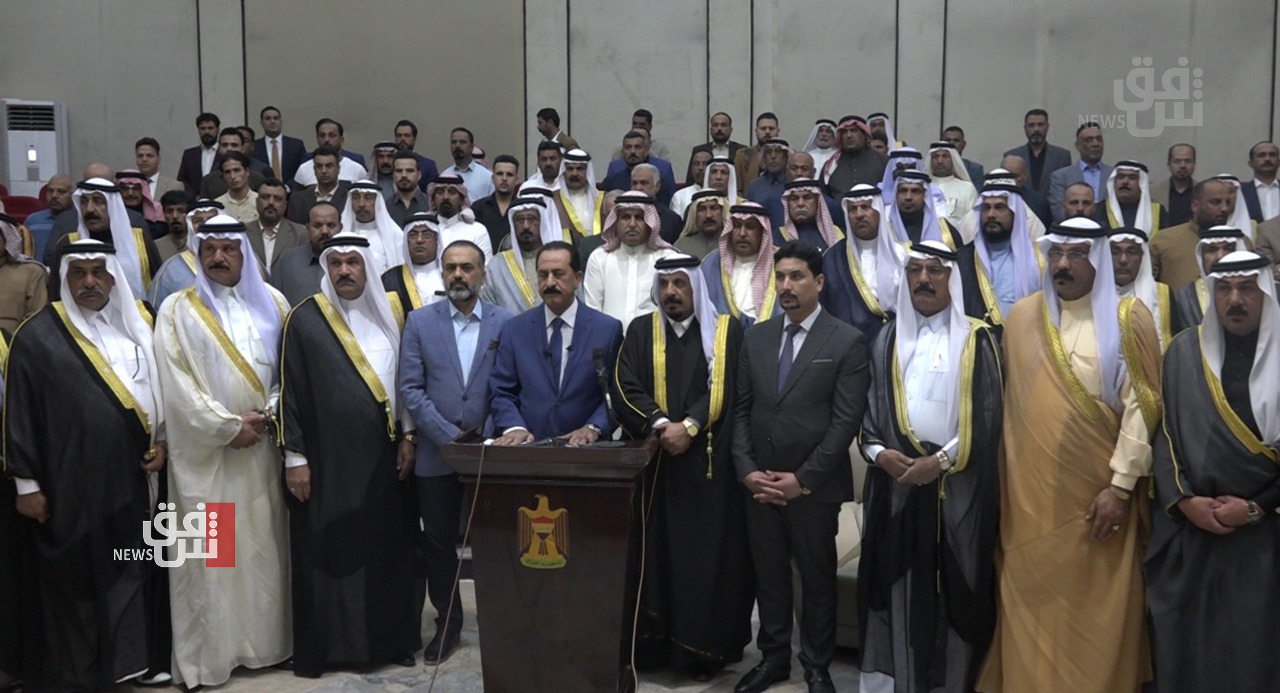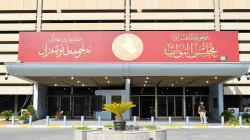Political realignments and emerging alliances: Iraq's Sunni landscape ahead of provincial elections

Shafaq News / As the countdown to the forthcoming provincial council elections begins, a palpable shift is observed within the Sunni political landscape of Iraq. This transformation involves the creation of fresh political alliances, serving as a counterpoint to existing figures whom critics argue have failed to effectively represent their constituents.
In a statement by Taha Abdul Ghani, a figurehead in the al-Anbar United Alliance, he reveals the imminent launch of a new political group. This development, he states, has arisen due to the daunting challenges besieging the governorates.
"The al-Anbar United Alliance was born in al-Anbar, destined to serve as the cornerstone for a comprehensive national project in all liberated governorates," Abdul Ghani relayed to Shafaq News Agency. He further added that coordination with other leaders and political figures in the liberated cities is underway in line with this vision.
"Our commitment to our governorate, born out of national, ethical, and social responsibility, demands the rejection of disruptive practices. It necessitates a return to state oversight and a guarantee that the governorate's resources serve its people," he asserted.
Elucidating the constitution of the al-Anbar United Alliance, Hussam al-Din al-Abbar, a member of Nineveh's provincial council, stated, "The members of the al-Anbar alliance have engaged in political activities and alliances with other parties in the past." However, he emphasized that these alliances varied, as they stemmed from a unique formulation separate from the Sunni decision-making process in politics.
Referring to the current rapprochement, al-Abbar pointed out, "This alignment has surfaced due to the Sunni political domination over the component's resources, positions, and both administrative and political work. It is a political reaction to the tyranny of a single party and seeks to redress grievances from the liberated areas affected during the ISIS period and earlier."
" New alliances are also manifesting within Nineveh, with their affiliation to the aforementioned alliance remaining unclear. The primary objective here is to dissolve a politically domineering bloc prevalent within the liberated governorates.
The struggle to monopolize leadership within the Sunni community in al-Anbar is becoming increasingly palpable, surfacing through the unveiling of corruption cases, the most recent being the land file in the Wafa area.
"Political alliances within Sunni governorates are indicative of an internal struggle for positions and personal gain, forsaking the hardship endured by the residents of afflicted regions, those plagued by arrests, enforced disappearances, deserted cities, and camps of displaced individuals deprived of the most fundamental life necessities," disclosed Abdul Qadir al-Nayel, a member of the Iraqi National Charter.
In his interview with Shafaq News Agency, al-Nayel further explained, "Sunni masses understand that these alliances are merely an adjunct to the political process, yielding little influence in the grand political scheme. They often find themselves at odds, spurred by various local and regional parties, while they fail to address the needs of the Sunni community and outstanding issues."
Mithal al-Alusi, a politician, former MP, and founder of the Iraqi Umma Party, concurred with al-Nayel's sentiments, asserting, "New alliances, constructed upon outdated, failed foundations and devoid of democratic values and integrity, offer little value."
He was dismissive of alliances, stating, "Alliances driven by personal rivalries and the influences of neighboring countries hold no true value."
Hani al-Shammari, a political researcher from Saladdin governorate, observed, "Certain alliances have been formed with the objective of overthrowing certain political forces that have been dominating the liberated governorates."
He stated, "A broader view reveals that the formation of any political coalition at this juncture is a precursor to alliances transitioning to provincial councils, while aiming to establish a political agenda that reaches the House of Representatives."
He emphasized, "Every political alliance should prioritize the interests of the citizens and aim to ameliorate their circumstances." He further pointed out that, "These alliances are incapable of fulfilling the aspirations of the citizens of those governorates."
On May 11, Yazan Misha'an al-Jubouri, the secretary-general of the Watan Party, announced the formation of a new political coalition, inclusive of the al-Siyada Alliance led by Khamis al-Khanjar, but excluding the Takkadom party led by Mohammed al-Halbousi, the current speaker of the House of Representatives.





